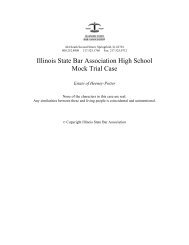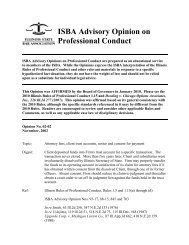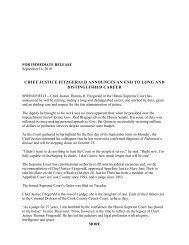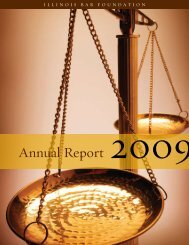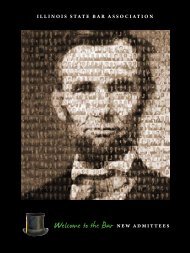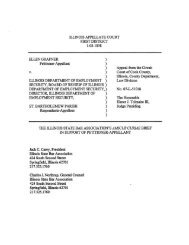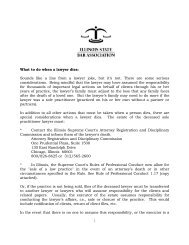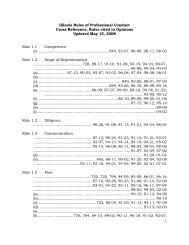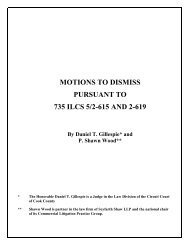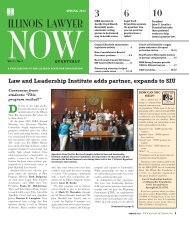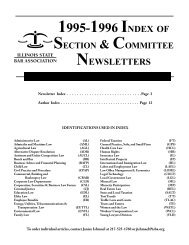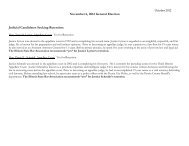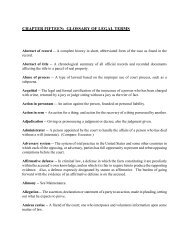You also want an ePaper? Increase the reach of your titles
YUMPU automatically turns print PDFs into web optimized ePapers that Google loves.
continue representing defendant if his appointment had beencontinued.The State also called Stuart Smith at the court’s request. Smithtestified that he did not have an “independent recollection” of any ofthe proceedings in this case on May 22, 2001. Similarly, Smithclaimed he could not recall having a conversation with Granich abouthis travel plans or about anything else that day. He pointed out thatthere was another Mr. Smith in the public defender’s office, but heagreed with the court that the transcript indicated that “Stuart Smith”was present.On cross-examination, Smith told the court that prior to hisappearance on May 22, 2001, defendant was “very upset and wasactually hanging from the top bars in the lock-up in the back based onhis being very upset.” After questioning from the court, Smithclarified that defendant was hanging from his arms and “climbing thewalls.”Court’s RulingsOn February 19, 2008, the court denied defendant’s motions in anoral ruling. With respect to defendant’s claim that he was denied hisrequest to represent himself, the court said that it was “unsupportedby the record” and “a waste of [the court’s] valuable time.” The courtreviewed the transcripts, noting that defendant had agreed to meetwith Buchholz and discuss the case, and at his next appearancedefendant had “without any prompting” stated, “And I agree to havecounsel represent me.” Thus, the court found, “He neverunequivocally decided to represent himself and, in fact, agreed tocontinue with the public defender without me asking him.”The court then turned to defendant’s argument that his guilty pleawas not knowing and voluntary. It again reviewed the relevant datesand appearances, summarized above. It noted that on April 26, 2001,it had not read the motion for appointment of counsel, but itappointed Granich knowing that it “had discretion to appointcounsel.” However, the court asserted that when it appointed Granichit did not know “that Mr. Granich had not been retained by Mr. <strong>Baez</strong>to represent him.” The court also noted that it was only after he wasappointed that Granich told the court he was requesting a second-44-



